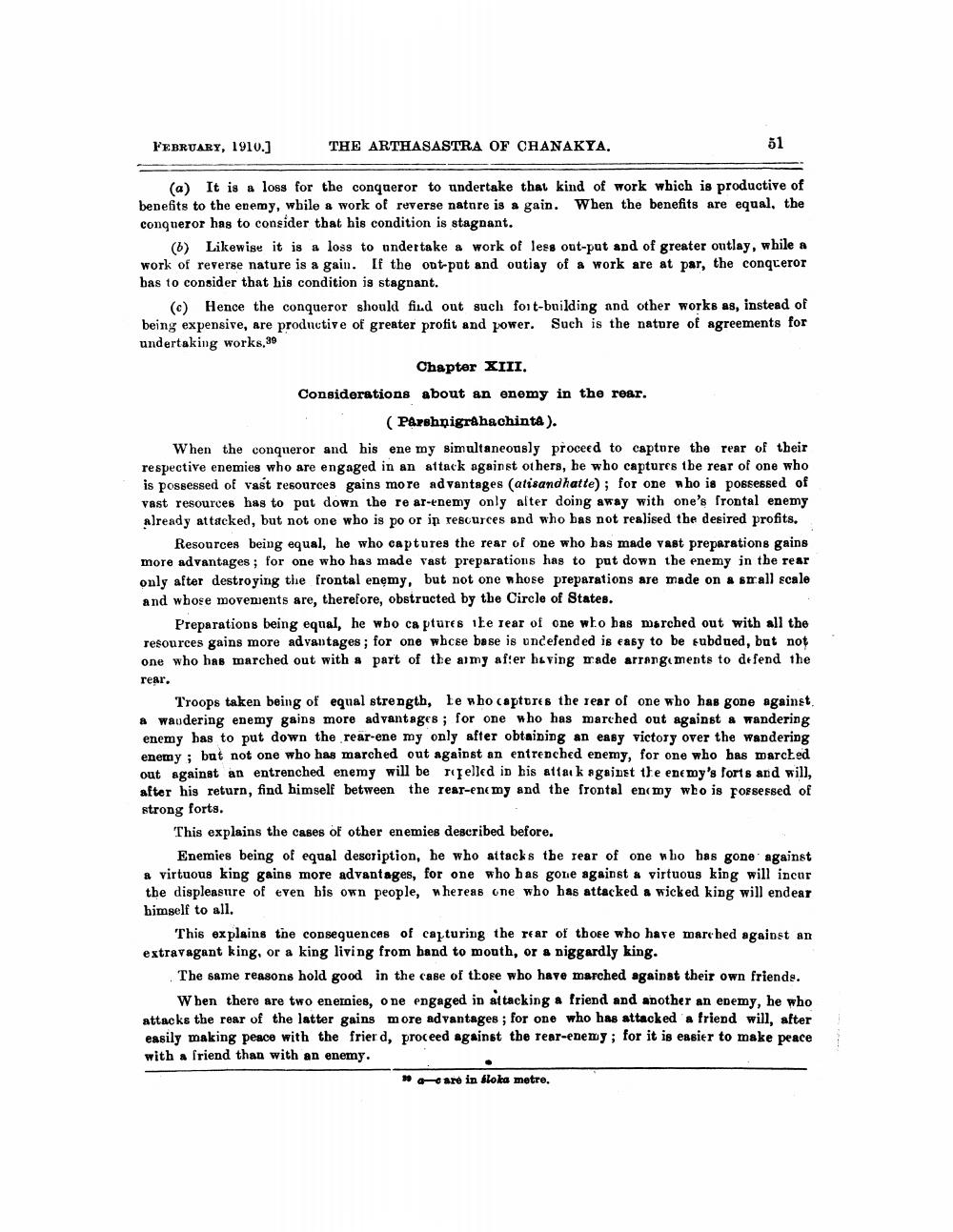________________
FEBRUARY, 1910.)
THE ARTHASASTRA OF CHANAKYA.
51
(a) It is a loss for the conqueror to undertake that kind of work which is productive of benefits to the enemy, while a work of reverse nature is a gain. When the benefits are equal, the conqueror has to consider that his condition is stagnant.
(6) Likewise it is a loss to undertake a work of less out-put and of greater ontlay, while a work of reverse nature is a gain. If the ont-put and outiay of a work are at par, the conqueror bas to consider that his condition is stagnant.
(c) Hence the conqueror should find out such fort-building and other works as, instead of being expensive, are productive of greater profit and power. Such is the nature of agreements for undertaking works,39
Chapter XIII. Considerations about an enemy in the rear.
(Parshnigråhachinta). When the conqueror and his ene my simultaneously proceed to capture the rear of their respective enemies who are engaged in an attack against others, he who captures the rear of one who is possessed of vast resources gains more advantages (atisandhatte); for one who is possessed of vast resources has to put down the rear-enemy only alter doing away with one's frontal enemy already attacked, but not one who is po or in rescurces and who has not realised the desired profits.
Resources being equal, he who captures the rear of one who has made vast preparations gains more advantages; for one who has made vast preparations has to put down the enemy in the rear only after destroying the frontal enemy, but not one whose preparations are made on a small scale and whose movenients are, therefore, obstructed by the Circle of States.
Preparations being equal, he wbo captures the rear of one who has marched out with all the resources gains more advantages; for one wbcee base is undefended is easy to be fubdued, but not one who has marched out with a part of the amy after having made arrangements to defend the rear.
Troops taken being of equal strength, te who captures the rear of one who has gone against & wandering enemy gains more advantages; for one who has marched out against a wandering enemy has to put down the rear-ene my only after obtaining an easy victory over the wandering enemy; but not one who has marched out against an entrenched enemy, for one who has marcted out against an entrenched enemy will be relled in his attack against the enemy's forts and will, after his return, find himself between the rear-enemy and the frontal enemy who is possessed of strong forts.
This explains the cases of other enemies described before.
Enemies being of equal description, he who attacks the rear of one who has gone against a virtuous king gains more advantages, for one who has gone against & virtuous king will incur the displeasure of even his own people, whereas one who has attacked a wicked king will endear himself to all.
This explains the consequences of capturing the rear of those who have mare bed against an extravagant king, or a king living from band to mouth, or a niggardly king.
The same reasons hold good in the case of those who have marched against their own friends.
When there are two enernies, one engaged in attacking a friend and another an enemy, he who attacks the rear of the latter gains more advantages ; for one who has attacked a friend will, after easily making peace with the frier d, proceed against the rear-enemy; for it is easier to make peace with a friend than with an enemy.
are in Sloka metre.




